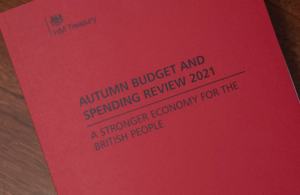Our commitment to seeing the UN on a better financial footing
Mr Chair,
I would like to thank Under Secretary-General, Catherine Pollard, for her update last week on the current financial situation of the United Nations, and to the UN Controller for his informal briefing.
The United Kingdom is pleased to hear that things appear to be improving gradually – with the Organisation receiving more Member State contributions, earlier in the year and that the level of outstanding assessments is going down. We commend the UN Controller and the rest of the Organisation once again for their careful prioritisation of how the United Nations uses its available resources to maintain mandate delivery, with a sharper focus on those activities that deliver results. We encourage the Secretariat to continue to prioritise and use its resources effectively, efficiently and agilely, including in response to new mandates.
That said, we remain concerned at the continuing liquidity problems faced by the United Nations. The time and resources spent managing and mitigating the impact of liquidity shortages could be better spent enhancing delivery to achieve more and better results on the ground. It is also clear that assessed contributions are not necessarily a guaranteed means for more predictable and sustainable funding for United Nations work.
Mr Chair,
We have heard the Secretariat’s concerns about the impact of unpredictable and late payment of assessed contributions. The United Kingdom has always paid its contributions in full, although with a distinct, yet predictable, payment pattern aligned to its national fiscal year. I am pleased to announce that as of 2022 we will transition our payment pattern to align with the United Nations’ financial years. We will pay our full assessed contribution to peacekeeping budgets in August 2022 and our full contribution to regular budget by January 2023. We encourage all Member States to take the steps needed to pay their assessed contributions in full and on time.
Mr Chair,
We are pleased that the reforms we agreed just over two years ago continue to have a positive impact for peacekeeping budgets. Seeing the benefits of these measures, we look forward to receiving from the Secretary-General this session, new and innovative proposals to help the United Nations alleviate the liquidity challenges and address structural issues with UN budgets, in particular with the regular budget. This is not just about tackling the challenges of today, but improving the system to increase agility for the future.
Finally, Mr Chair I would like to reassure you of the United Kingdom’s commitment to seeing the United Nations on a better financial footing.

